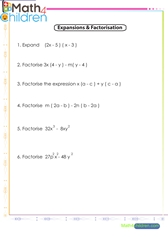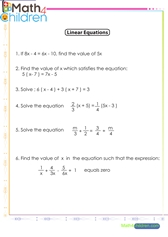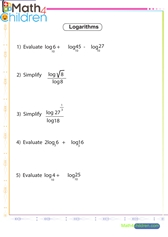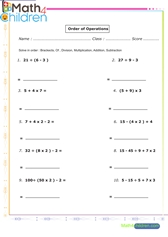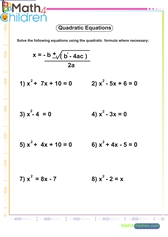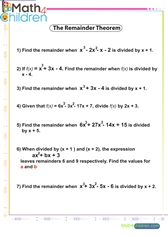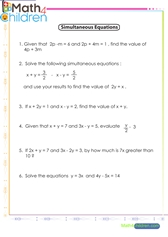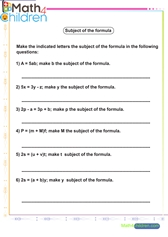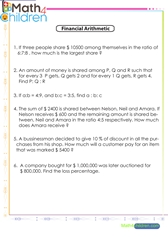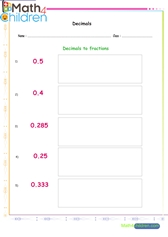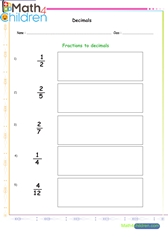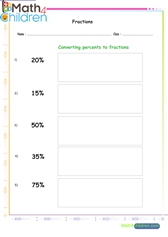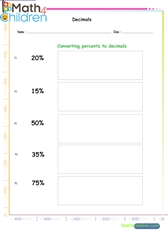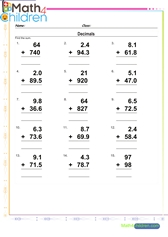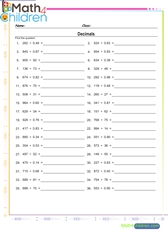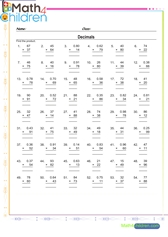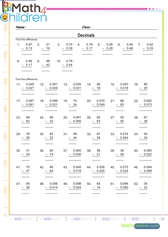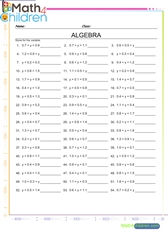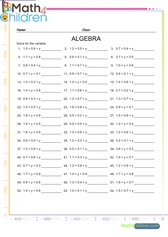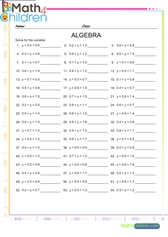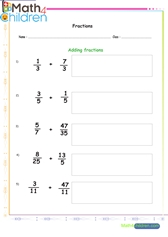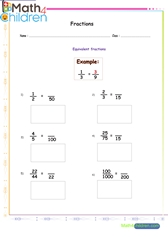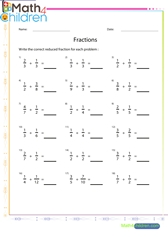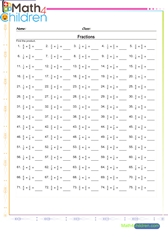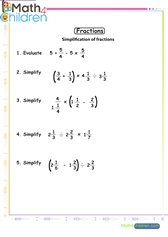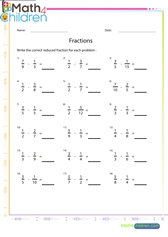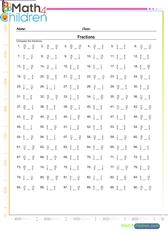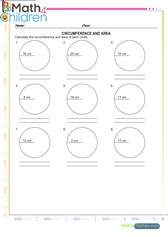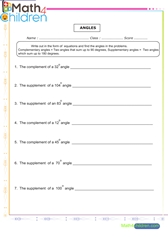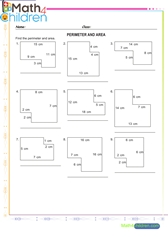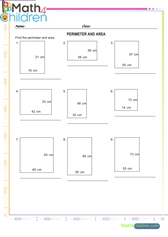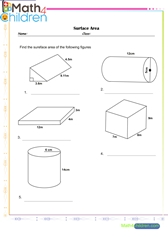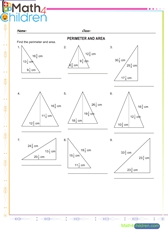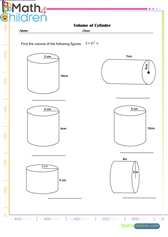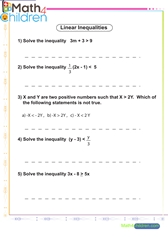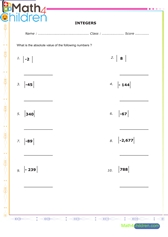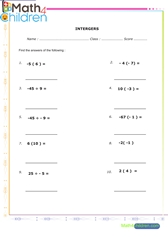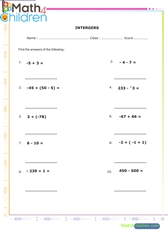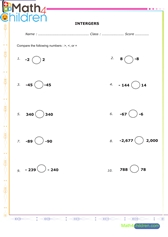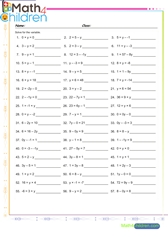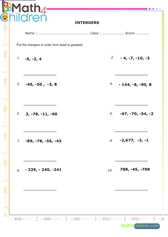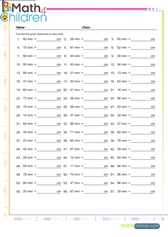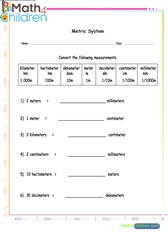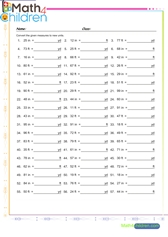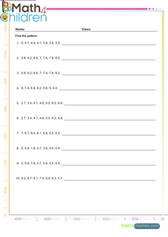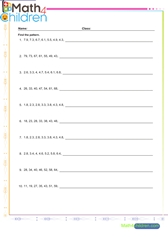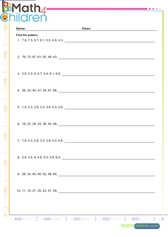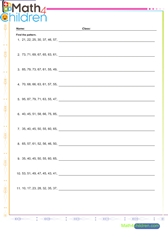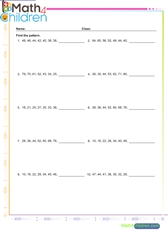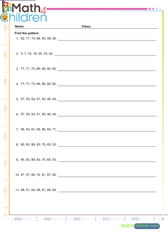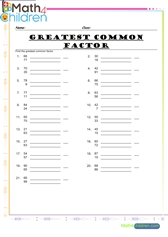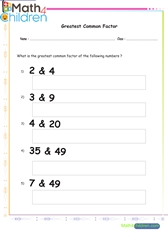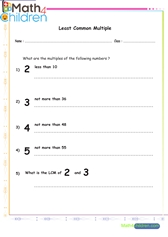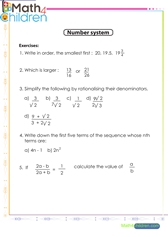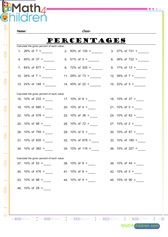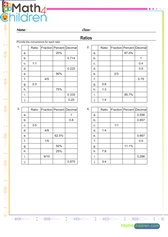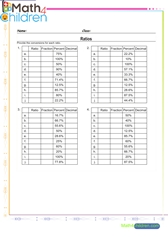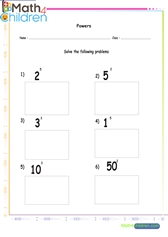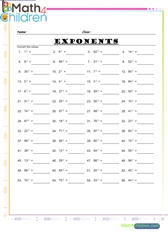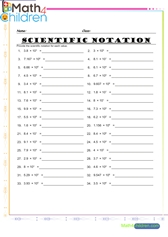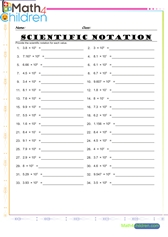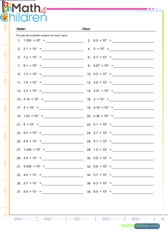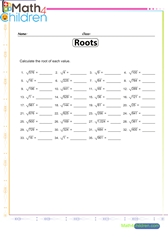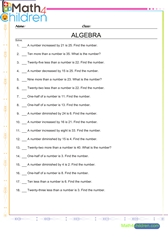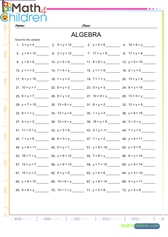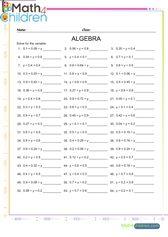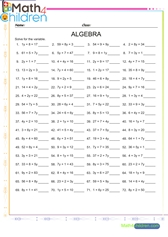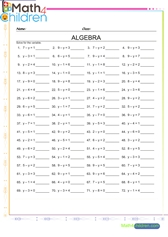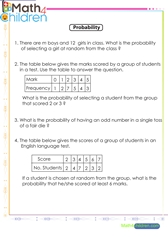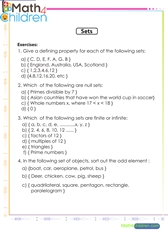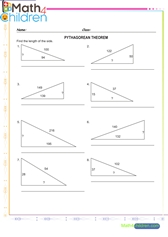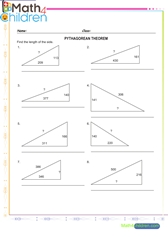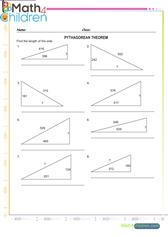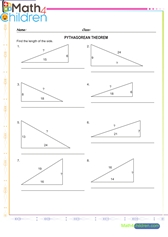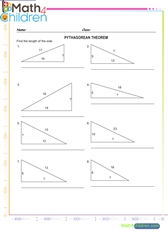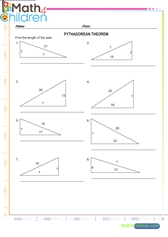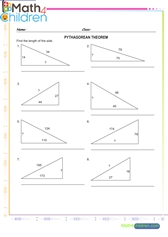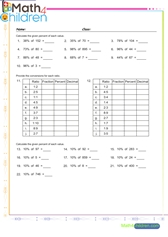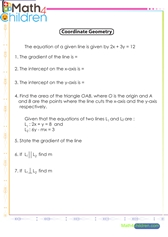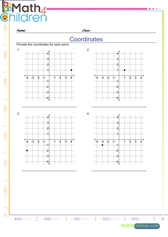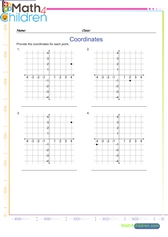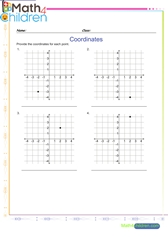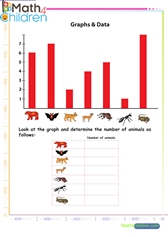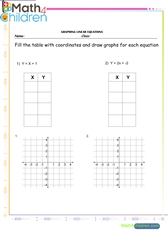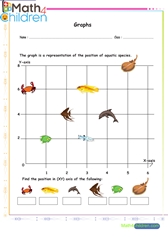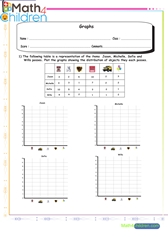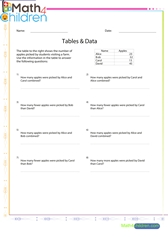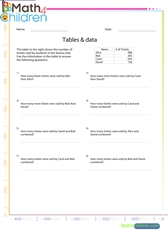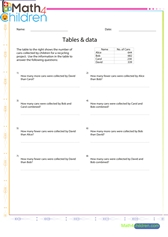Mastering Algebra for Dummies: Your Ultimate Guide to Acing Math
Are you struggling to wrap your head around algebra? Don't worry; you're not alone! Algebra might seem intimidating, but with the right guidance, even the most math-phobic individuals can conquer it. In this comprehensive guide, we'll break down algebra for dummies, step by step, and answer frequently asked questions to ensure you grasp the fundamentals and excel in this crucial branch of mathematics. Continue below >>
Converting decimals to fractions
Converting decimals to fractions printable math worksheet
Converting fractions to decimals
Converting fractions to decimals printable math worksheet
Converting fractions to percents
Converting fractions to percents printable math worksheet
Converting percentage to decimals
Converting percentage to decimals printable math worksheet
Converting fractions to percents
Converting fractions to percents printable math worksheet
Complementary supplementary angles
Complementary supplementary angles printable math worksheet
Surface area of complex figures
Surface area of complex figures printable math worksheet
Metric system converting scales
Metric system converting scales printable math worksheet
Ratio percent decimals fractions convertions
Ratio percent decimals fractions convertions printable math worksheet
Pre algebra multiplication addition
Pre algebra multiplication addition printable math worksheet
Triangle sides pythagorean theoream 6
Triangle sides pythagorean theoream 6 printable math worksheet
Triangle sides pythagorean theorem 1
Triangle sides pythagorean theorem 1 printable math worksheet
Triangle sides pythagorean theorem 2
Triangle sides pythagorean theorem 2 printable math worksheet
Triangle sides pythagorean theorem 3
Triangle sides pythagorean theorem 3 printable math worksheet
Triangle sides pythagorean theorem 4
Triangle sides pythagorean theorem 4 printable math worksheet
Triangle sides pythagorean theorem 5
Triangle sides pythagorean theorem 5 printable math worksheet
Triangle sides pythagorean theorem 7
Triangle sides pythagorean theorem 7 printable math worksheet
Understanding Algebra: The Basics
1. What is Algebra, and Why is it Important?
Algebra is a branch of mathematics that deals with symbols and the rules for manipulating those symbols to solve equations and understand relationships between variables. It's a fundamental skill in mathematics and is essential for a wide range of careers, from engineering to finance.
2. Where should I start if I'm an absolute beginner?
Start with the basics: understanding numbers, operations, and order of operations. Familiarize yourself with integers, fractions, decimals, and percentages. These foundational concepts will serve as the building blocks for more advanced algebraic topics.
3. What are Algebraic Expressions?
An algebraic expression is a mathematical phrase that includes variables, constants, and operations like addition, subtraction, multiplication, and division. For example, "3x + 5" is an algebraic expression where "x" is the variable.
Solving Equations in Algebra
4. How can I solve Equations in Algebra?
To solve equations, you'll often need to isolate the variable. Use inverse operations (e.g., addition and subtraction, multiplication and division) to move terms around until you have the variable on one side and constants on the other.
5. What is the Quadratic Formula, and when is it used?
The quadratic formula is used to solve quadratic equations of the form ax^2 + bx + c = 0. It's especially useful when factoring or other methods don't work. The formula is:
cssx = (-b ± √(b² - 4ac)) / (2a)
Visualizing Algebraic Concepts
6. How can I visualize Algebraic Graphs?
Graphs are a powerful tool in algebra. They help you understand relationships between variables. For instance, a linear equation like "y = 2x + 3" represents a straight line when graphed, with a slope of 2 and a y-intercept of 3.
Resources for Learning Algebra
7. What resources can help me learn Algebra for Dummies?
There are numerous resources available, including textbooks, online courses, and tutorials. You can also find algebra apps and interactive websites that provide practice problems and step-by-step explanations.
8. Any tips for tackling word problems in algebra?
Break down word problems into smaller steps, translate words into algebraic expressions or equations, and solve systematically. Pay attention to keywords that indicate mathematical operations (e.g., "more than," "less than," "product of," "sum of").
9. Is Algebra for Dummies suitable for self-study?
Absolutely! The "For Dummies" series is designed to make complex topics accessible to beginners. Combine it with practice, patience, and dedication, and you can master algebra on your own.
Overcoming Challenges in Algebra
10. How can I overcome math anxiety when studying algebra?
Math anxiety is common, but it's manageable. Start with small goals, seek help when needed (tutors, study groups), and use positive affirmations. Remember, with persistence, you can conquer algebra!
Conclusion
Algebra for dummies doesn't have to be a daunting task. With this guide and the right resources, you can build a strong foundation and progress to more advanced algebraic concepts. Whether you're a student trying to ace your math class or an adult looking to refresh your math skills, remember that practice and perseverance are key to mastering algebra. So, dive in, and let's make algebra a subject you excel in!
FAQ: Demystifying Algebra for Dummies
1. What is Algebra, and Why is it Important?
Algebra is a branch of mathematics that deals with symbols and the rules for manipulating those symbols to solve equations and understand relationships between variables. It's a fundamental skill in mathematics and is essential for a wide range of careers, from engineering to finance.
2. Where should I start if I'm an absolute beginner?
Start with the basics: understanding numbers, operations, and order of operations. Familiarize yourself with integers, fractions, decimals, and percentages. These foundational concepts will serve as the building blocks for more advanced algebraic topics.
3. What are Algebraic Expressions?
An algebraic expression is a mathematical phrase that includes variables, constants, and operations like addition, subtraction, multiplication, and division. For example, "3x + 5" is an algebraic expression where "x" is the variable.
4. How can I solve Equations in Algebra?
To solve equations, you'll often need to isolate the variable. Use inverse operations (e.g., addition and subtraction, multiplication and division) to move terms around until you have the variable on one side and constants on the other.
5. What is the Quadratic Formula, and when is it used?
The quadratic formula is used to solve quadratic equations of the form ax^2 + bx + c = 0. It's especially useful when factoring or other methods don't work. The formula is:
cssx = (-b ± √(b² - 4ac)) / (2a)
6. How can I visualize Algebraic Graphs?
Graphs are a powerful tool in algebra. They help you understand relationships between variables. For instance, a linear equation like "y = 2x + 3" represents a straight line when graphed, with a slope of 2 and a y-intercept of 3.
7. What resources can help me learn Algebra for Dummies?
There are numerous resources available, including textbooks, online courses, and tutorials. You can also find algebra apps and interactive websites that provide practice problems and step-by-step explanations.
8. Any tips for tackling word problems in algebra?
Break down word problems into smaller steps, translate words into algebraic expressions or equations, and solve systematically. Pay attention to keywords that indicate mathematical operations (e.g., "more than," "less than," "product of," "sum of").
9. Is Algebra for Dummies suitable for self-study?
Absolutely! The "For Dummies" series is designed to make complex topics accessible to beginners. Combine it with practice, patience, and dedication, and you can master algebra on your own.
10. How can I overcome math anxiety when studying algebra?
Math anxiety is common, but it's manageable. Start with small goals, seek help when needed (tutors, study groups), and use positive affirmations. Remember, with persistence, you can conquer algebra!
Conclusion
With this comprehensive guide and FAQ section, you now have a solid resource to help you master algebra, even if you're starting as a beginner. Take your time, practice regularly, and don't be afraid to seek help when needed. Algebra is a valuable skill that can open doors to various educational and career opportunities, so embrace the challenge and enjoy the journey of learning algebra for dummies!

